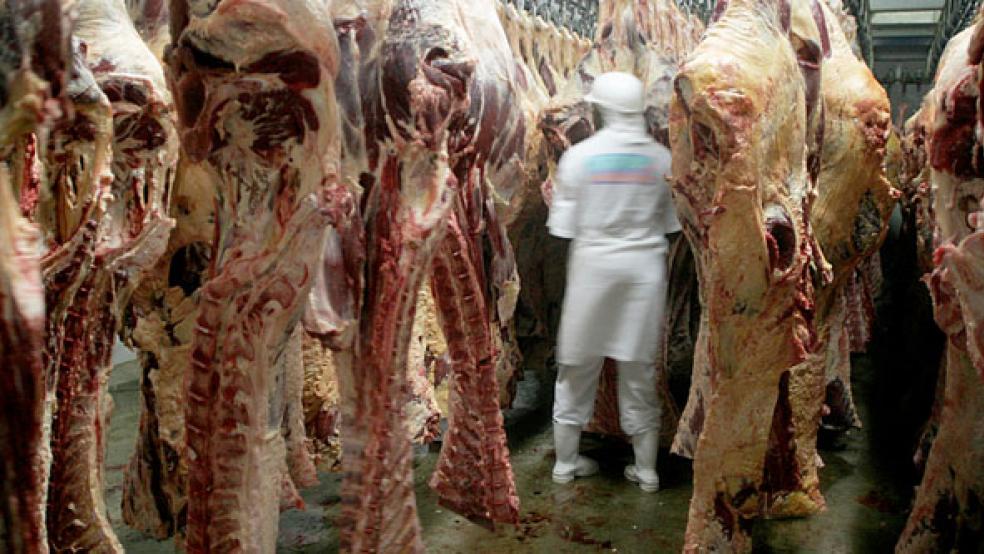With 14 million Americans out of work, long grim lines at job fairs, and employment agencies jammed with the hopeful, there are still jobs that go begging. Despite the desperate measures some are taking to find employment, a handful of positions remain stubbornly vacant. Last month the ratings firm Fitch reported that even with high unemployment, some businesses can’t fill their openings. Software and natural-resource-extraction companies are among those still trying to hire because they can’t find enough people with the right skills.
“Even though we’ve had several years of high unemployment, it takes a little bit of time to acquire those skills,” says Sophia Koropeckyj, managing director at economic forecaster Moody’s Analytics. She should know—companies like Moody’s are taking a long time to fill open economist positions, she says.
There’s also a geography problem, says Koropeckyj—people out of work often don’t live where the jobs are. But that’s not just because they refuse to move—many of them can’t after the housing bust because they’re stuck in a mortgage they can’t unload. In 2008, researchers for the Federal Reserve Bank of New York found that homeowners who owe more on their houses than they are worth are 50 percent less likely to move.
And then there are “dirty” jobs—high-stress, uncomfortable, dangerous, or just plain icky, that regardless of the recession, you have to be pretty desperate to sign up for. Here are 9 hideous jobs and how businesses are faring as they try to keep them filled.
Dairy farm hand: Forget the idyllic farm scenes—milkers work graveyard shifts in too-cold or too-hot barns. And, explains National Milk Producers Federation spokesperson Chris Galen, “When you’re milking, you’re near the [cow’s] business end. There’s a certain amount of manure that comes with the job.” That’s why dairy farmers long have had a shortage of American-born workers -- 41 percent of dairy hands now are foreigners. The dairy industry says that without them, about 4,500 farms would shut down for lack of help.
Head lice technician: With an estimated 6 to 12 million new cases each year, the lice-busting companies are swarming the country. But the population of workers willing to pick nits isn’t growing fast enough. Amy Graff, owner of LouseCalls, which operates in central and southern Florida, says only half of her applicants show up for scheduled interviews. She’s still trying to fill a position in Miami that’s been open more than a year.
Window washer: Almost all window washing jobs involve scary heights and exposure to the elements. Injury rates are high—about eight window washers in New York City are involved in accidents each year, and 75 died on the job there between 1983 and 2008. Finding people comfortable both on a scaffold and with a squeegee is tough. Leonard Malray of Contract Services Group, based in California’s Orange County, says that of six open window-cleaning jobs he’s had open since the beginning of the year, he’s filled only two.
Diaper service worker: “It’s a very dirty job. It’s disgusting,” says Laura Gately of the en masse cloth diaper washings that she and her husband do in their Blessed Bums Organic Diaper Service based in Santa Clarita, California. Environmental and cost concerns about disposables have driven up the number of cloth diaper cleaning services, according Judy Aagard, a board member at the Real Diaper Industry Association. But despite the unpleasantness of the job, Aagard says the new companies find it easy to hire. At her company, the San Francisco-based Tiny Tots Diaper Service, it usually takes no more than a day to fill jobs.
High-rise ironworker: Ironworkers put up our bridges, highways, and buildings in all weather and often at heights that make the rest of us weak kneed. That plus so-so pay ($34,000 on average) made this CareerCast’s second-worst job of 2011. Still, people are applying: the local iron workers union in Omaha, Nebraska, says they got between 50 and 100 applicants for their twenty low-paying apprenticeship positions this year.
Septic tank/sewer pipe servicer: Today’s vacuum tank trucks make suctioning hundreds of gallons of sewage a cleaner job than in the past. But when sewer lines clog, technicians have to cram into tight, unsanitary spaces, so the job calls for a strong stomach. Finding workers who can do all of that and still be nice to customers isn’t easy, says Richard Rosano, owner of R.W. Rosano Excavation and Septic Specialists near Boston. Hiring for his latest tank servicer position, at a starting wage of $17 an hour, took nine months.
Oil and gas industry roustabout: Back-breaking work, tight spaces, high injury rates, and exposure to the elements—for a median wage of only $15 an hour—made this CareerCast’s worst job of 2011. In Pennsylvania’s fast-growing Marcellus shale region, gas drillers receive several hundred applications per year and will take almost anyone who applies. According to industry spokesperson Travis Windle, 90 to 95 percent of those who pass 6- to 8-week roustabout training sessions get jobs—and that means the only ones who didn’t fail their drug tests.
Meter reader: They’re one of the most despised government workers by drivers, and because of automation, the government forecasts that there will be 20 percent fewer of them in 2018 than in 2008. Those are just a few of the reasons CareerCast rated meter reading as the ninth-worst occupation of 2011. But the applicants keep coming anyway. Maggie Dominguez from the placement firm Select Staffing in Sun City, California, says about 40 people apply for every meter reading opening—which normally pay about $10 an hour.
Animal slaughterer: Damp rooms, slippery floors, and grisly tasks involving cleavers and chain saws make slaughterhouse work among the most dangerous (including “occasional amputations,” according to the U.S. Department of Labor). Companies have plenty of applicants but have trouble keeping them (turnover runs as high as 200 percent in the first year a plant opens). At Gold Medal Packing in Rome, New York, it takes about three weeks to find someone who will stick with the job, says a representative. Nationally, slaughterhouses hire four workers for every one they’re able to retain, estimates Jay Wenther, director of the American Association of Meat Processors.


